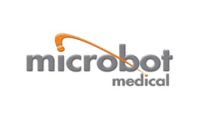-
Abbisko Therapeutics Announces that U.S. FDA Has Granted Fast Track Designation for Its CSF-1R Inhibitor Pimicotinib(ABSK021)
- Source: drugdu
- 102
- December 17, 2023
-
US WorldMeds’ Iwilfin bags FDA nod as 1st oral maintenance treatment for high-risk neuroblastoma
- Source: drugdu
- 88
- December 16, 2023
-
Abecma’s survival data show why FDA wanted expert meeting on the Bristol Myers cell therapy
- Source: drugdu
- 99
- December 13, 2023
-
With More 2024 FDA Filings Planned, Novartis Drug Starts Showing Blockbuster Potential
- Source: drugdu
- 105
- December 13, 2023
-
Vertex, CRISPR score landmark FDA approval for sickle cell disease gene therapy Casgevy
- Source: drugdu
- 114
- December 12, 2023
-
FDA Approves Two Landmark Cell-Based Gene Therapies for Sickle Cell Disease
- Source: drugdu
- 97
- December 12, 2023
-
On Heels of ASH Data, Pfizer Eyes FDA Submission for New Hemophilia Drug
- Source: drugdu
- 95
- December 12, 2023
-
FDA fast tracks Solid Biosciences’s Duchenne gene therapy
- Source: drugdu
- 102
- December 11, 2023
-
Laboratory trade group, providers oppose FDA’s lab developed test proposal
- Source: drugdu
- 133
- December 9, 2023
-
Microbot Medical is a step closer to an FDA IDE submission
- Source: drugdu
- 107
- December 9, 2023
your submission has already been received.
OK
Subscribe
Please enter a valid Email address!
Submit
The most relevant industry news & insight will be sent to you every two weeks.













